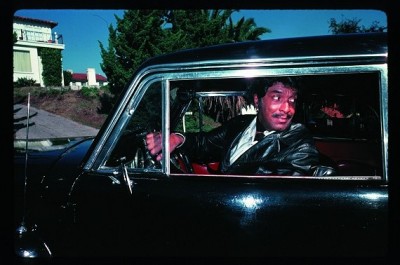



Help us Continue to tell OUR Story and join the AFRO family as a member –subscribers are now members! Join here! “I have tried to tell this tale the way he might have wanted: clearly, honestly, and without moralizing,” Gifford writes in the book’s preface. It’s easy to see how so many Black women were forced into the world of prostitution, easy to see how Black men looking for a sense of power and prestige would be eager to take on the role of pimp. In this way, Gifford explains how institutional racism and poverty created the perfect climate for a Black underworld dominated by pimping and illegal gambling. His business as a pimp flourishes in cities like Chicago and Detroit, where blacks are redlined into slums and police turn a blind eye on crimes like prostitution and gambling.

In Biography, Beck’s story is a microcosm of what is going on in Black America as a whole. He provides detailed interviews with Beck’s wives and children and even fact-checks the details of a daring prison escape Beck says he made. Gifford takes painstaking effort to verify or prove false the claims that Beck makes in his books. That’s where Gifford’s over 10-years’ worth of research comes in.
#Iceberg slim family full#
It’s also easy to see that while Beck’s writing was gritty, graphic and chock full of slick talk – it might not have necessarily have all been true. It’s easy to see how these toasts evolved into modern day rap. The toasts were meant to impress other pimps and charm a woman into becoming part of his “stable.” “And they styled their antiestablishment messages and hardcore confessionals of violent street life after Beck’s street fiction.”īeck’s writing grew out of pimp tradition of “toasts.” Toasts were spoken-word poems or raps where pimps could brag about how cool they were, how much money they had or their sexual conquests. “Both named themselves after Iceberg Slim,” Gifford writes about the rappers. He says Ice-T and Ice Cube both chose their names because of the pseudonym Beck used in his works. There would have been no street literature, no Blaxploitation, no hip hop the way we know them today without Pimp: The Story of My Life,” Gifford writes.Īccording to Gifford, comedians Dave Chappelle and Chris Rock, rapper Jay-Z and boxer Mike Tyson are all fans of Beck’s work. “For nearly fifty years, Robert Beck’s works have quietly, from the underground, transformed African American literature and culture. In, he fleshes out the life of a man who went from pimp, to family man, to scholar to one of the early architects of modern-day hip-hop. Gifford is both highly detailed and reverent in his study into Beck’s life and his writing. In Street Poison: The Biography of Iceberg Slim, writer and professor Justin Gifford has written a book that is can be seen as a companion piece to Beck’s works. The book helped make Beck one of the most successful black writers of his time. Even though it was ignored by mainstream media – The New York Times wouldn’t even allow ads for it in the paper- Black America ate it up. But more than that, it was a way of writing about black life that had never been seen before. The book was the graphic, lurid tale of Beck’s life as a pimp and a con artist. In 1967, when Robert Beck published his memoir, Pimp: The Story of My Life, it was a game changer.


 0 kommentar(er)
0 kommentar(er)
